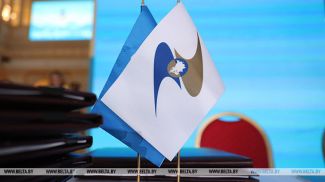MINSK, 23 April (BelTA) - In order to ensure the protection of national interests, taking into account the unfriendly actions against the Belarusian people, the government has announced a list of goods prohibited for import and sale in Belarus. The relevant decision is envisaged in Resolution No. 240 of the Council of Ministers of 23 April 2021, BelTA learned from the government's press service.
The document was adopted on the basis of Decree No.128 "On the application of special measures" which envisages banning the import into the territory of Belarus and the sale of certain groups of goods (including goods of individual manufacturers), that originate in the state and/or the association of states that have imposed special measures against Belarusian legal entities and/or individuals or that have joined these measures.
The list of prohibited goods includes the goods made by groups of companies: LIQUI MOLY, ŠKODA AUTO and BEIERSDORF (trademarks NIVEA, EUCERIN, LA PRAIRIE, LABELLO, HANSAPLAST, FLORENA, 8X4, SKIN STORIES, GAMMON, TESA, CHAUL, COPPERTONE, HIDROFUGAL, STOP THE WATER WHILE USING ME).
The resolution also approved a provision regulating the handling of banned products.
If these products are detected while being imported into Belarus, they will be sent back. If these products are found in retail outlets, markets, exhibitions, fairs, online stores and the Internet, sellers will be issued a warning.
The resolution does not apply to the products imported in Belarus for personal use, vehicles registered in the Eurasian Economic Union member states, as well as vehicles temporarily imported into the customs territory of the Eurasian Economic Union.
The resolution also sets forth the procedure for selling above-mentioned products that had been imported in Belarus before the decree came into force.
“Sales outlets that will still have banned products in stock when the resolution comes into force will be required to suspend wholesale and retail trade in such products. They will have five days to draw up an inventory of such products and prepare an inventory register. Upon completing the register, sales outlets shall submit two copies to the local tax office in the course of five days. After that, they will be given 60 days to label the remaining stock of banned products with special control markings,” the government's press service explained.
After labeling the remaining stock of such products, sales outlets will be allowed to continue selling them. Sales outlets defying the ban will be held accountable in line with the legislation.
The main provisions of the resolution will come into effect ten days after the official publication of the document. The list of banned products will be valid for six months.













